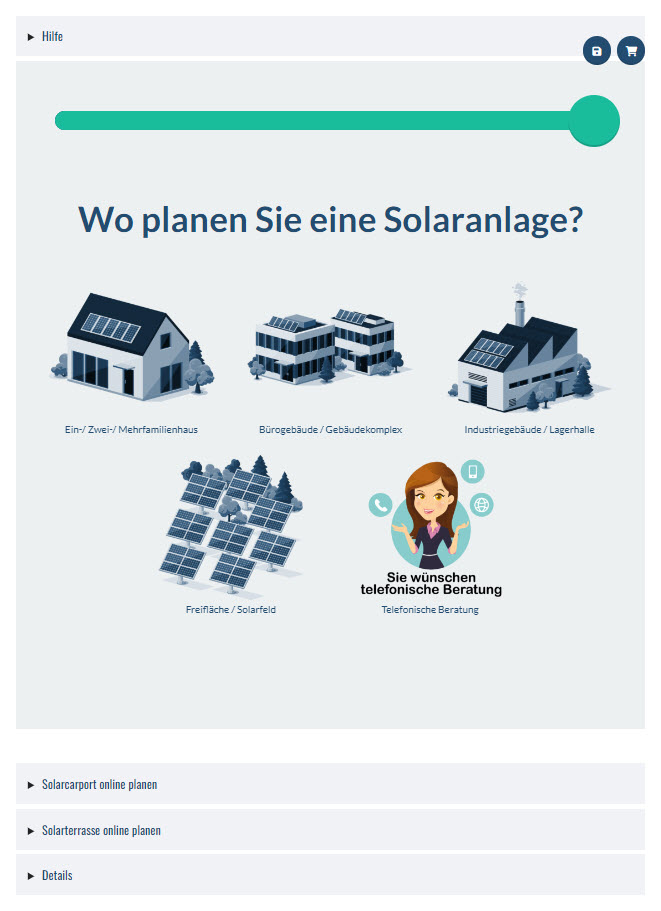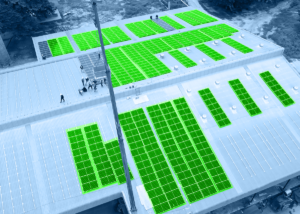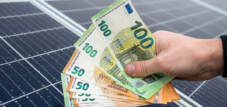Energy efficiency law & short-term measures: CO2 tax, energy efficiency and why companies, companies and the manufacturing industry must act now at the latest
Language selection 📢
Published on: July 12, 2023 / update from: July 12, 2023 - Author: Konrad Wolfenstein

CO2 tax, energy efficiency and why companies, companies and the manufacturing industry must act now - Image: Xpert.Digital
The missed potential of the Energy Efficiency Act: Why clear guidelines are crucial for companies
The CO2 tax is a significant financial burden for companies that do not rely on renewable energy in their business models. It is not only an economic challenge, but also a regulatory one, as it requires a change in the business model to respond to the long-term environmental impact of CO2 emissions. The tax is a direct response to global pressure to reduce global warming caused by human influence.
A 2023 World Economic Forum study showed that companies that don't invest in renewable energy could be less competitive in the long run. The cost increases from the carbon tax could even increase the competitive advantage of companies investing in renewable energy. That's because these companies can avoid not only the costs of the carbon tax, but also the rising costs of fossil fuels.
Despite the clear business interest in investing in renewable energies, companies' willingness to invest in energy-efficient building renovations and energy-efficient new construction is currently at a low point. This is due to both the current economic situation and political uncertainties. In particular, the failed attempt to get the Energy Efficiency Act through the Bundestag has unsettled companies.
The political turbulence surrounding the Energy Efficiency Act shortly before the parliamentary summer break has increased the uncertainty factor for companies. The failed attempt to pass the law has shown that there is currently no clear political direction for energy policy. This back and forth makes companies hesitant to invest in energy efficiency measures because they are unsure what the requirements will be in the future.
The present draft of the Energy Efficiency Act would have been an important step towards anchoring efficiency standards in the German economy. With the law, the state would have given companies a clear mandate to save energy. Such a step would be crucial to achieving Germany's climate goals and would provide companies with clarity and direction for their investments.
The lack of adoption of the Energy Efficiency Act before the summer break has rightly caused regret among environmental associations. Without clear and binding requirements for energy efficiency, the energy transition, and thus climate protection, will hardly make any progress. Focusing on energy efficiency is critical to reducing dependence on fossil fuels and promoting a sustainable economy.
In order to achieve long-term and sustainable changes, German companies must recognize the political will for the energy transition and the implementation of climate protection measures. This requires political leadership that sets clear and binding guidelines while offering incentives for companies to invest in energy efficiency and renewable energy.
Plan your solar system for the most common applications conveniently online with our solar system planner!
With our user-friendly solar system planner you can plan your individual solar system online. Whether you need a solar system for your home, your business or for agricultural purposes, our planner offers you the opportunity to take your specific requirements into account and develop a tailor-made solution.
The planning process is simple and intuitive. You simply enter relevant information. Our planner takes this information into account and creates a tailor-made solar system that meets your needs. You can try out different options and configurations to find the optimal solar system for your application.
Additionally, you can save your plan to review later or share with others. Our customer service team is also available to answer your questions and provide support to ensure your solar system is optimally planned.
Use our solar system planner to plan your individual solar system for the most common applications and advance the transition to clean energy. Start now and take an important step towards sustainability and energy independence!

The solar system planner for the most common applications: Plan the solar system online here - Image: Xpert.Digital
More about it here:
📣 Energy-related renovation and new construction, consulting, planning and implementation for industry, retail and municipalities
Our experienced team will support you in optimizing your buildings to reduce energy consumption and promote sustainable energy use with photovoltaics. We analyze your individual needs and create tailor-made concepts that make sense both economically and ecologically. Regardless of whether it is about the energy-efficient renovation of existing buildings or the construction of new energy-efficient structures, we are at your side. Industrial facilities, retail buildings and municipal facilities can reduce their energy costs and reduce environmental impact while improving the comfort and efficiency of their buildings through our tailored solutions.
👨🏻 👩🏻 👴🏻 👵🏻 Energy-saving renovation and new construction, advice, planning and implementation for private households
We offer comprehensive support for private households in the energy-efficient renovation and construction of new buildings with photovoltaics. Our experienced team is at your side to help you advise, plan and implement your sustainable energy solutions. We analyze your energy consumption, identify savings potential and develop tailor-made concepts to improve your energy efficiency. From improving building insulation to installing energy-efficient windows and doors to installing photovoltaic and solar systems - we accompany you step by step to make your home more energy efficient and environmentally friendly. Trust in our expertise and benefit from the numerous advantages that energy renovation and the use of renewable energies offer you. Together we will create a sustainable future for your home.
Energy Efficiency Act makes companies responsible
The importance of energy efficiency and climate protection is becoming increasingly important. Companies face the challenge of reducing their energy consumption and implementing efficient measures. With the Energy Efficiency Act, the federal government has taken an important step to hold companies accountable and give them clear guidelines. The Energy Efficiency and Climate Protection Networks Initiative has presented various short-term measures.
Background of the Energy Efficiency Act
The aim of the Energy Efficiency Act is to oblige companies to introduce energy or environmental management systems and to draw up and publish concrete plans for energy-efficient measures. These measures are intended to achieve ambitious goals that contribute to climate protection and reduce energy consumption.
Potential for energy savings in companies
Despite progress that has already been made, there is still untapped potential for further reducing energy requirements in companies. The Energy Efficiency and Climate Protection Networks Initiative has therefore developed a series of short-term measures to support companies in implementing energy-efficient measures. These measures can not only be implemented quickly, but are also economically profitable.
Short-term energy saving measures
Insulation of heat pipes
An effective measure for saving energy is the insulation of heat pipes. Improved insulation can minimize heat loss, resulting in a reduction in energy consumption. This measure is easy to implement and can quickly lead to noticeable savings.
Increasing the cooling temperature in the server room
Another approach to saving energy is to increase the cooling temperature in the server room. Server rooms are often unnecessarily cooled, which leads to high energy consumption. By moderately increasing the cooling temperature, companies can reduce their energy requirements without compromising operational safety.
Closing leaks in compressed air networks
Leaks in compressed air networks are a common source of energy loss. By regularly checking and repairing leaks, companies can significantly reduce their energy consumption. This measure can be implemented cost-effectively and offers great savings potential.
Practical examples and calculation examples
The Energy Efficiency and Climate Protection Networks Initiative provides various fact sheets on its website that contain practical examples and concrete steps for implementing short-term measures. These fact sheets offer companies valuable assistance in implementing energy-efficient measures. The fact sheets also present calculation examples that illustrate the possible savings in terms of energy, CO2 emissions and costs.
Criticism of the Energy Efficiency Act
Despite the positive development in the area of energy efficiency, there is also criticism of the Energy Efficiency Act. Some experts criticize that the law has been significantly weakened by amendments from government groups. This softening could lead to the German climate targets for 2030 not being achieved.
Softening of requirements for the states
The requirements for the states with regard to their savings obligations have also been weakened. This could lead to the total contribution required by the EU from the federal and state governments not being achieved. It remains questionable whether this reduction in requirements complies with EU law and whether it meets the objectives of the Energy Efficiency Directive.
Opportunities and barriers in the energy services market
Experts criticize that the draft of the Energy Efficiency Act does not contain any real equality requirements for energy services. There are still barriers that hinder market solutions to implement and finance energy transition measures. Unleashing the energy services market would be an important step in advancing the energy transition.
Long-term goals and willingness to invest
The long-term goals of the Energy Efficiency Act are of great importance in order to achieve long-term primary energy goals and to implement Germany's climate neutrality goal for 2045. However, there is criticism that these goals have been significantly downgraded in the current amendment. The binding nature of the goals and investment security play a crucial role in motivating companies to implement efficiency measures.
➡️ The Energy Efficiency Act and the short-term measures of the Energy Efficiency and Climate Protection Networks Initiative are important instruments for encouraging companies to implement energy-efficient measures. It is the responsibility of companies to take advantage of these opportunities and make their contribution to climate protection. Targeted energy savings can not only reduce costs, but also free up capacity for investments. Implementing energy-efficient measures is an investment in the future.
FAQs
Which companies are affected by the Energy Efficiency Act?
The Energy Efficiency Act affects companies whose annual energy consumption exceeds a certain level. The exact criteria are defined in the law.
How can companies benefit from the short-term measures?
The short-term measures offer companies concrete recommendations for action on how to implement energy-efficient measures. The savings can reduce costs and free up capacity for investments.
Where can you find more information about the short-term measures?
Advice and solutions can be found here 👈🏻
What role does the Energy Efficiency Act play in climate protection?
The Energy Efficiency Act is an important instrument for achieving Germany's climate goals. By reducing energy consumption, the law contributes to climate protection.
Why is the Energy Efficiency Act controversial?
The Energy Efficiency Act is controversial because some amendments have led to the law being weakened. As a result, the German climate targets for 2030 could be missed.
What does the current Energy Efficiency Act say and what obligations do companies face?
The current Energy Efficiency Act obliges companies to introduce energy or environmental management systems or to draw up and publish concrete plans for measures, depending on their annual energy consumption. This law sets ambitious goals that require large and small companies to make additional savings efforts in order to avoid waste heat or use it sensibly.
How much energy is consumed by manufacturing companies and industry in Germany?
Manufacturing companies contribute more than a quarter of all energy consumption in Germany. When it comes to natural gas, around 37 percent of the consumption occurs in industry.
What short-term measures has the Energy Efficiency and Climate Protection Networks Initiative put together?
The Energy Efficiency and Climate Protection Networks Initiative has put together a series of short-term measures to help companies further reduce their energy requirements. These measures include, for example, insulating heat pipes, increasing the cooling temperature in the server room and closing leaks in compressed air networks. The fact sheets on their website offer practical recommendations for action, concrete steps for implementation and calculation examples of possible energy, CO2 and cost savings.
How does the German Corporate Energy Efficiency Initiative (DENEFF) react to the weakening of the Energy Efficiency Act?
DENEFF criticizes the weakening of the Energy Efficiency Act as economically damaging. She emphasizes that the changes to the draft law do not offer long-term investment security and that the German climate targets for 2030 could ultimately be missed. When saving energy, the traffic lights only operate on sight and do not fulfill the necessary measures to achieve the set goals.
Why is the long-term nature and binding nature of the goals crucial for companies and the efficient economy?
The long-term nature and binding nature of the goals are crucial for companies' investment security and the efficient economy. They make it possible to redirect spending on energy imports into efficiency investments and strengthen the economy through higher energy productivity. Long-term and binding goals are particularly important in times when companies' willingness to invest in efficiency measures is at an all-time low.
The impact of the CO2 tax on companies
It is undisputed that the carbon tax has a profound impact on the economy and especially on companies. Not only are the direct cost increases a burden, but they also create significant competitive disadvantages for those who are unwilling or unable to invest in renewable energies.
The importance of investing in renewable energy
The impact of the carbon tax on competitiveness
Companies that do not invest in renewable energy risk being left behind. The carbon tax is a regulation that forces companies to rethink their energy habits and work more efficiently. Otherwise there is a risk of cost increases and a loss of competitiveness.
Consequences of not investing in renewable energies
If companies do not improve their energy efficiency, they may face additional costs in the form of carbon taxes. This will ultimately reduce their profitability and could threaten their survival.
The low point of the willingness to invest – the energy-efficient building renovation and the energy-efficient new building
Despite the impending risks, it is clear that the willingness to invest in energy-efficient building renovations and energy-efficient new buildings has reached a low point.
It is crucial that companies invest in energy efficiency in order to achieve long-term economic success. Spending on energy imports could be redirected to efficiency investments to strengthen the economy through higher energy productivity.
Political uncertainty and the Energy Efficiency Act - The collapse of the vote on the Energy Efficiency Act
The recent political uncertainty surrounding the Energy Efficiency Act does not offer any prospect of business planning security, but on the contrary. The planned vote on the law failed immediately before the parliamentary summer break.
The impact on corporate planning
This political uncertainty makes it difficult for companies to make long-term plans and investments in energy efficiency. This creates a hesitant investment climate.
The future without energy efficiency law - The need for systematic energy saving
Without the Energy Efficiency Act, the state would have given companies a clear mandate for the first time to systematically save energy. Because without more efficiency and savings, the energy transition and therefore more climate protection will not work.
The importance of energy efficiency for climate protection
Energy efficiency plays a crucial role in climate protection. Companies must reduce their energy consumption and switch to renewable energy sources in order to reduce emissions and achieve climate protection goals.
➡️ It is clear that both the CO2 tax and the current political uncertainty surrounding the Energy Efficiency Act have a significant impact on companies and the entire economy. It is to be hoped that companies will recognize the importance of investing in energy efficiency and act accordingly to avert the negative effects of the CO2 tax.
- Warehouses, production halls and industrial halls with their own power source from a photovoltaic roof system - Image: NavinTar|Shutterstock.com
- Industrial plant with its own power source from an outdoor photovoltaic system - Image: Peteri|Shutterstock.com
- Plan solar systems with photovoltaic solutions for freight forwarding and contract logistics
- B2B solar systems and photovoltaic solutions & advice
- Plan photovoltaics for warehouses, commercial halls and industrial halls
- Industrial plant: Plan a photovoltaic open-air system or open-space system
- Plan solar systems with photovoltaic solutions for freight forwarding and contract logistics
- B2B solar systems and photovoltaic solutions & advice
Expert advice on energy-efficient renovation and new construction with Xpert.Plus
I would be happy to serve as your personal advisor.
You can contact me by filling out the contact form below or simply call me on +49 89 89 674 804 (Munich) .
I'm looking forward to our joint project.
Xpert.Digital – Konrad Wolfenstein
Xpert.Digital is a hub for industry with a focus on digitalization, mechanical engineering, logistics/intralogistics and photovoltaics.
With our 360° business development solution, we support well-known companies from new business to after sales.
Market intelligence, smarketing, marketing automation, content development, PR, mail campaigns, personalized social media and lead nurturing are part of our digital tools.
You can find out more at: www.xpert.digital – www.xpert.solar – www.xpert.plus






























